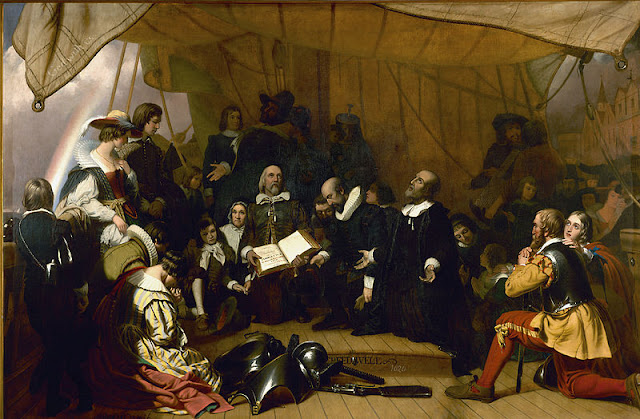Now that the cold is beginning to make our lives more difficult, here is a veryVictorian sad little song about a bird that would rather give up true love than flying.
Ahora que el frío empieza a complicar nuestra existencia, he aquí una triste cancioncilla muy victoriana sobre un pájaro que renunció al amor antes que a volar.


The Little Yellow Bird / El Pajarito Amarillo (traducción literal)
The snow was very plentiful, / La nieve era mucha
and crumbs were very few, / y las migas de pan muy escasas,
when a weather beaten sparrow through, / cuando una pobre gorrioncita,
a mansion window flew. / entró volando por la ventana de una mansión.
Her eye fell on a golden cage, / Sus ojos se posaron en una jaula de oro,
a sweet love song she heard, / y una dulce canción de amor escuchó,
sung by a pet canary there, / cantada por un canario,
a handsome yellow bird. / un apuesto pájaro amarillo,
He said to her, “ Miss Sparrow, / que le dijo, “Señorita Gorrioncita,
I've been struck by Cupid’s arrow, / la flecha de Cupido me ha alcanzado.
would you share my cage with me?” / ¿Compartirías mi jaula conmigo?”
She looked up his castle, / Ella estudio su castillo,
with its ribbon and its tassel, / con su lazo y su borlón,
and in a plaintive tone said she: / y con voz compungida contestó,
“Goodbye, little yellow bird, / “Adiós, pajarito amarillo,
I'd rather brave the cold / prefiero enfrentarme al frío,
on a leafless tree, / en un árbol pelado,
than a prisoner be, / a ser la prisionera,
in a cage of gold.” / de una jaula de oro.”
The spoiled and petted yellow bird, / El pajarito amarillo, mimado y malcriado,
could scarcely believe it true, / no podía creer lo que oía,
that a common sparrow should refuse, / que un vulgar gorrión pudiese rechazar
a bird with blood so blue. / a un pájaro de sangre tan azul.
He told her the advantages, / Le explicó las ventajas de tener
of riches and of gold, / oro y riquezas.
she answered that her liberties, / Ella contestó que su libertad
for gold could not be sold. / no se podía vender por dinero.
She said I must be going, / Dijo que era hora de irse,
but he cried, “No, no, it’s snowing, / pero él la recordó que estaba nevando
and the wintry windstorm blows! / y que el viento invernal soplaba.
Stay with me, my little deary, / “Quédate conmigo, mi amorcito,
for without you 'twould be dreary," / que sin ti, mi vida sería muy triste.”
but she only sighed ah no. / Pero ella suspiró y se negó,
"Goodbye, little yellow bird, / “¡Adiós, pajarito amarillo!
I'd gladly mate with you, / Me encantaría ser tu pareja.
I love you little yellow bird, / Te amo, pajarito amarillo,
but I love my freedom too, / pero también amo mi libertad,
so goodbye little yellow bird, / así que adiós, pajarito amarillo,
I'd rather brave the cold, / prefiero enfrentarme al frio,
on a leafless tree, / en una árbol pelado,
than a prisoner be, / a ser la prisonera
in a cage of gold. / de una jaula de oro.”
Angela Lansbury sang it in a film version of "The Picture of Dorian Gray."
If you want to hear this, click on the address below. The chorus is catchy.
http://youtu.be/Wd0_K0fqGVA
Angela Lansbury la cantó en una versión cinematográfica de "El retrato de Dorian Gray." Si la quieres escuchar, pincha en la dirección que viene debajo. El estribillo es pegadizo.
http://youtu.be/Wd0_K0fqGVA
Victorian songs often told little stories and were very sentimental.
Las canciones victorianas con frecuencia contaban pequeñas historias y eran muy sentimentales.
True or false / Verdadero o falso
1. There are three little birds in this song, the yellow bird, the canary and the sparrow. / Hay tres pajaritos en esta canción, el pajarito amarillo, el canario y la gorrioncita.
2. The little sparrow was cold and hungry. / La gorrioncita pasaba frío y hambre.
3. The canary lived in a cage in a flat. / El canario vivía en una jaula en una apartamento.
4. The sparrow was a fortune huntress who asked the canary if she could stay to live with him. / La gorrioncita era una cazafortunas que preguntó al canario si podía quedarse a vivir con él.
5. The canary said the god of love had struck him with his arrow. / El canario dijo que el dios del amor le había dado con su flecha.
6. The canary explained that having riches had its advantages. / El canario explicó que tener riquezas tenía sus ventajas.
7. The sparrow thought freedom was less important than comfort and security. / La gorrioncita pensaba que la libertad era menos importante que la comodidad y la seguridad.
8. La gorrioncita dejó al canario porque no le quería. / The sparrow left the canary because she didn´t love him.
We found the lovely pictures of the canary, the sparrow and the golden cage on the Internet.
Encontramos las bonitas imágenes del canario, la gorrioncita y la jaula de oro en Internet.
























.jpg)













